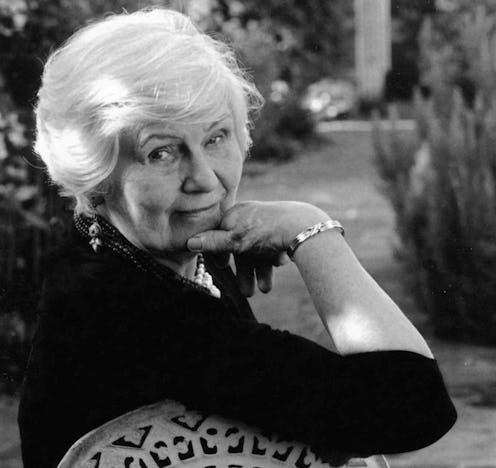Books
Teen Angst In 'A Long Way from Verona'

As a Brit abroad, having been raised on the tales of mischievous young schoolgirls by the likes of Enid Blyton, I was wary of how well A Long Way from Verona (Europa), the first of Jane Gardam’s novels, would stack up against my favored collections on English teen angst.
Set in England at the peak of the second World War, the novel follows the coming of age of 13-year-old Jessica Vye, a spunky, independent young girl, navigating the maze of adolescence. Despite some adult skepticism of her literary talents, mainly from her teachers, her ambitions lie in a writing career, and she is determined not to let the common follies of her fellow tweens distract her from her goal. With adulthood looming, however, Jessica encounters situations and circumstances that force her to admit that a little growing up might be necessary.
“I ought to tell you at the beginning that I am not quite normal, having had a violent experience at the age of nine," Jessica says to introduce herself, and one is instantly swept up by her confident (often bordering on arrogant) manner, simultaneously self-aware and nonchalant. She rallies against her teachers, not yet possessed of the patience to hold her tongue. The brazen defiance with which she meets a challenge (and most authority figures, for that matter) is reminiscent of the Huck Finn fearlessness so appealing in adventurous young fiction heroes and heroines.
Through Gardam’s choice of bold and witty banter through which Jessica tells the story, the world is captured perfectly through this self-assured 13-year-old lens. Jessica's voice is clear, as are her opinions on the “Upper Class,” seen when she remarks disdainfully on the belief of two rather prissy pre-teens that “…boarding school makes you Stand On Your Own Feet.” Her feelings towards others are exemplified in the names she gives them as “Cissie Horrible Cumberbach” and “Miss Somebody Else” reminds us of her age, easily forgotten given her outspoken confidence.
In a refreshing departure from the usually tense depiction of the pubescent parent-child battle, we find Jessica utterly enamoured with her father, a fixture in their local church. “The thing about my father is that he can prove every single thing he says,” she remarks with pride as she describes his “absolutely marvelous sermons.” She describes him as a “Great Man,” and indeed he speaks with the same brash humor and honesty clearly inherited by his daughter. And, although she and her mother are less likely to dwell in this kind of mutual admiration, Jessica nonetheless comes to respect her mother’s warmth and sensitivity toward the novel’s end. Throughout, she writes poetry, of which we see very little as she grapples with her perpetual dissatisfaction with it.
As we delve deeper into the story, we receive reminders of the tale’s historical context. Though air raids and Blitzkrieg bombings, Jessica maintains her bullish optimism, perhaps in spite of it. But it is by no means irrelevant that her young view on the world is largely shaped by her circumstances. The war has left her family in what she initially sees as poverty, and she is ill at ease in the moments of formality that require the “growing up” that is so abhorrent to a young spunky renegade such as herself. In a letter to Florence, her closest school friend, she describes the experience of attending a country “House Party,” where she appalls herself in delighting in the loveliness and splendor of her wealthy host’s surroundings. It is here that she is given a rude awakening to her own naivety, through Christian, her host’s son:
You’re not poor. You’re flaming rich. We’re all flaming rich. Your family and mine don’t know what poverty is… Look, after this war there’s going to be a change. Haven’t you gathered that? No more rich men, no more Churchills, no more precious aristocrats. There’s going to be a revolution.
This marks the first of many moments further on in the book that exposes Jessica to some of life’s harsh realities. This instance, in particular, forces our young heroine to not only take the nation’s wartime status seriously, but to also confront that most terrible and wonderful of adolescent experiences — her first crush. To Florence, she writes:
Actually, he is the most heavenly, marvelous person I’ve ever seen in my life and I didn’t mean what I said at the beginning of this letter that I’m having an awful time because I’ve never been so happy in my whole life.
This crush is short-lived but, as the war rages on, Jessica Vye struggles with the battle between her desire to rally against the norm and her growing awareness of what it means to grow up.
Her passion and fiercely individual voice make her more than the run-of-the-mill teenage heroine, and make A Long Way from Verona far more than just another coming-of-age story.